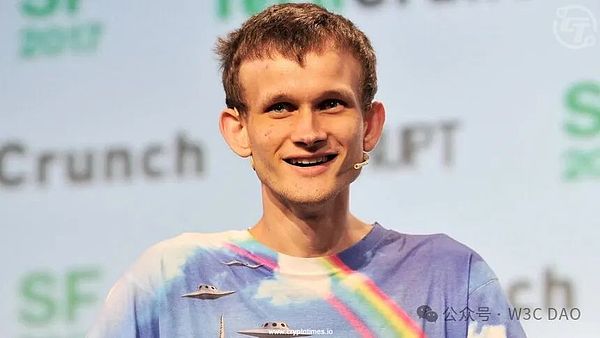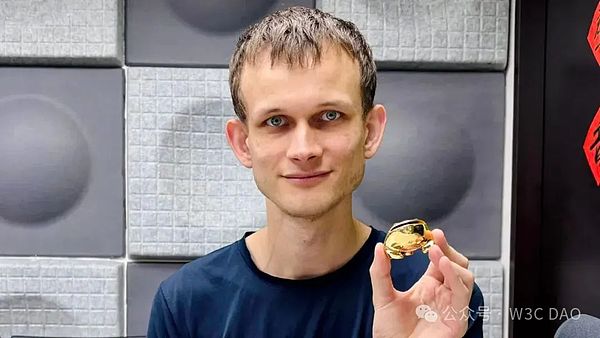Author: Tristan Green; Translator: W3C DAO
Nobel Prize
Recently, economists Tyler Cowen and Alex Tabarrok, founders of Marginal Revolution, recently selected who is likely to win the 2024 Nobel Prize in Economics.

Cowen said it was an "unusual choice" and that if he had the chance, he would choose Ethereum co-founder and computer scientist Vitalik Buterin.
When he and co-host Tabarrok discussed their views on the merits of theoretical economics, the two agreed that Buterin should have won the award because "he has really made some contributions to the field of monetary economics."
Per Cowen, "Vitalik built a platform, created a currency, arguably disproved Mises' regression theorem in the process, and is clearly following in Satoshi's footsteps, but my god, what does a person have to do to win a Nobel Prize?"
Tabarrok agreed, adding: "Not only that, but Vitalik continues to contribute to Ethereum's mechanism design through proof-of-stake." He likened Ethereum's progression from proof-of-work to proof-of-stake to "those people in Saudi Arabia changing tires on a car while it's moving."
Tabarrok added: “That’s what Ethereum does.”
The two also discussed Vitalik’s seemingly easygoing personality, calling him the face of the cryptocurrency world and seen as a smart and likable guy.
However, Tabarrok did point out that Buterin’s contribution to cryptocurrency is second only to Bitcoin’s anonymous creator. “Yeah, I agree. Of course, Satoshi Nakamoto deserves it too, but I’m sure he’s dead,” he said, prompting Cowen to retort, “I’m not sure he’s dead.”
On Oct. 8, an HBO documentary revealed the true identity of Bitcoin creator Satoshi Nakamoto as computer scientist Peter Todd.

However, in general, the cryptocurrency community does not seem to be convinced, and Todd himself has denied the authenticity of the filmmaker's claims.
In addition, the winners of the Nobel Prize in Economics will be announced on October 14.
Legendary Life
Buterin was born into a Russian family in Kolomna, Russia. His father Dmitry is a computer scientist. He lived in the area with his parents until he was six years old, when his parents immigrated to Canada in search of better employment opportunities. In the third grade of elementary school in Canada, Buterin was placed in a class for gifted children and developed a strong interest in mathematics, programming and economics. Buterin then attended The Abelard School, a private high school in Toronto. Buterin learned about Bitcoin from his father when he was 17.
After graduating from high school, Buterin enrolled at the University of Waterloo. There, he took advanced courses and served as a research assistant to cryptographer Ian Goldberg, co-founder of Off-the-Record Messaging and former chairman of the board of the Tor Project. In 2012, Buterin won a bronze medal at the International Olympiad in Informatics held in Italy.

In 2013, he visited developers in other countries who were as passionate about code as he was. Later that year, he returned to Toronto and published a white paper proposing Ethereum. In 2014, he dropped out of college, received a $100,000 Thiel Fellowship, a scholarship established by venture capitalist Peter Thiel, and began working on Ethereum full-time.
 JinseFinance
JinseFinance
 JinseFinance
JinseFinance decrypt
decrypt Beincrypto
Beincrypto Beincrypto
Beincrypto Coindesk
Coindesk Beincrypto
Beincrypto Others
Others Bitcoinist
Bitcoinist Bitcoinist
Bitcoinist Bitcoinist
Bitcoinist